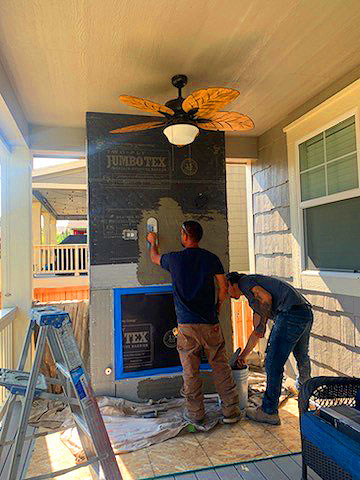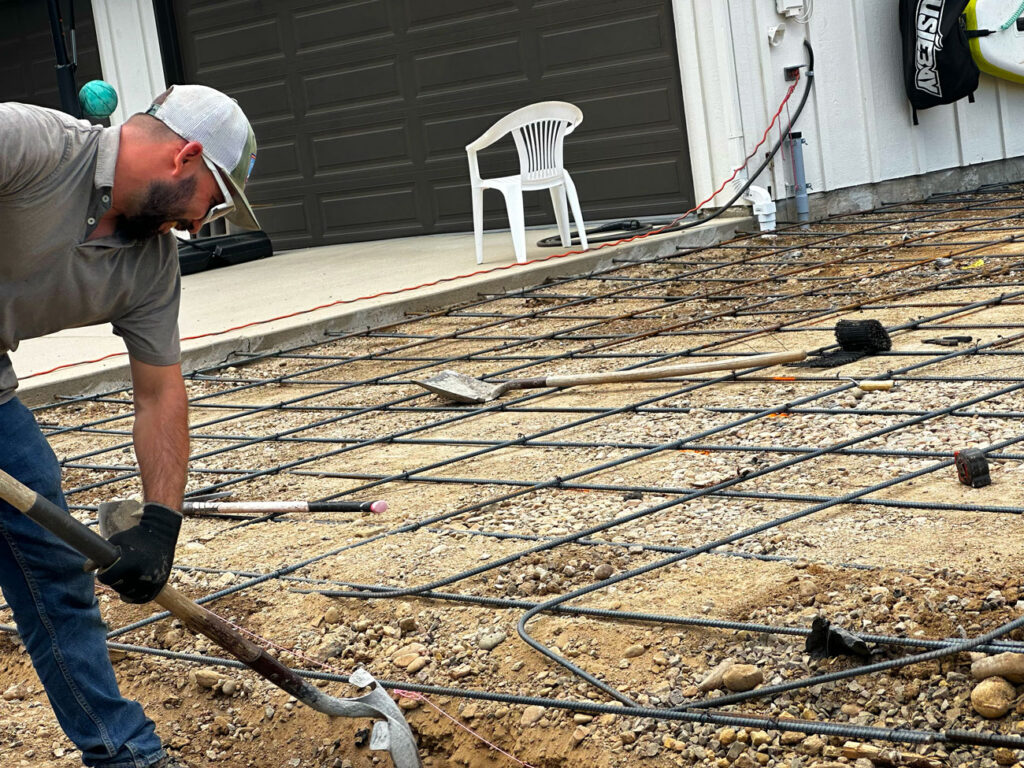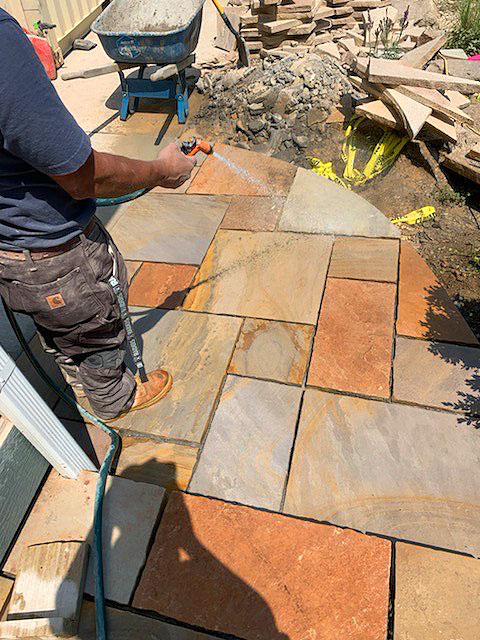When embarking on a masonry project, safety and cleanliness are paramount. Properly managing your worksite not only ensures the safety of everyone involved but also protects your property and maintains the quality of the finished work. In Colorado’s Front Range, where conditions can vary from sunny and dry to snowy and cold, it’s essential to adopt practices that address these challenges while upholding the highest standards of safety and cleanliness. Here’s a comprehensive guide to keeping your masonry projects safe, clean, and respectful of your property.
1. Planning and Preparation
A successful masonry project starts with thorough planning and preparation. This initial step is crucial for setting the stage for a safe and organized work environment.
- Project Assessment: Evaluate the site to identify any potential hazards, such as uneven terrain, overhead obstructions, or existing structures that could be affected.
- Permits and Regulations: Ensure that you have all necessary permits and comply with local building codes. This will help avoid legal issues and ensure that your project adheres to safety standards.

2. Personal Protective Equipment (PPE)
Using appropriate personal protective equipment (PPE) is essential for safeguarding workers against common masonry hazards.
- Safety Glasses: Protect your eyes from dust, debris, and flying particles. Ensure that all workers wear safety glasses at all times.
- Gloves: Use sturdy, cut-resistant gloves to protect hands from sharp tools and materials.
- Dust Masks: Prevent inhalation of dust and respirable silica by wearing dust masks or respirators, especially when cutting or grinding materials.
- Hearing Protection: Use earplugs or earmuffs to protect against noise from equipment like saws and mixers.
3. Maintaining a Clean Worksite
A clean worksite reduces the risk of accidents and ensures a more efficient workflow. Implementing effective housekeeping practices is key.
- Debris Management: Regularly remove debris, such as excess mortar, broken bricks, or scraps of stone, from the work area. Use designated bins or containers to keep the site tidy.
- Tool Storage: Store tools and equipment in a designated area when not in use. Avoid leaving them scattered across the site to prevent tripping hazards.
- Cleaning Up Spills: Immediately clean up any spills, such as mortar or water, to prevent slips and falls. Use absorbent materials or rags for quick cleanups.

4. Protecting the Property
Safeguarding your property during a masonry project is crucial to avoid damage and ensure that the final result enhances your space.
- Covering Surfaces: Use protective coverings, such as plastic sheeting or tarps, to shield existing surfaces, landscaping, and outdoor furniture from mortar splashes and dust.
- Barrier Construction: Set up barriers or fencing around the work area to keep people and pets away from potentially hazardous zones.
- Proper Disposal: Dispose of waste materials in compliance with local regulations. Avoid dumping materials on-site or in unauthorized areas.
5. Equipment Safety
Proper handling and maintenance of equipment are essential for both safety and efficiency during masonry projects.
- Tool Inspection: Regularly inspect tools and machinery for wear and tear. Replace any damaged or malfunctioning equipment before use.
- Safe Operation: Follow manufacturer guidelines for operating tools and machinery. Ensure that all operators are trained and competent in using the equipment safely.
- Maintenance: Perform routine maintenance on equipment, such as lubrication and cleaning, to ensure optimal performance and reduce the risk of accidents.

6. Handling Materials Safely
Proper handling of masonry materials is critical to preventing injuries and maintaining the quality of the work.
- Lifting Techniques: Use proper lifting techniques to avoid back injuries. Lift with your legs, not your back, and use lifting equipment or assistive devices for heavy materials.
- Material Storage: Store materials in a stable and secure manner to prevent shifting or falling. Stack bricks, stones, and other materials neatly and on level ground.
7. Emergency Preparedness
Being prepared for emergencies is an essential aspect of maintaining a safe worksite.
- First Aid Kit: Keep a well-stocked first aid kit readily available. Ensure that all workers know its location and how to use its contents.
- Emergency Contacts: Have emergency contact numbers, including local medical facilities and emergency services, easily accessible.
- Training: Provide basic first aid and emergency response training to all workers. Conduct regular safety drills to ensure everyone knows how to respond to emergencies.

8. Post-Project Cleanup and Inspection
After completing the masonry project, conduct a thorough cleanup and inspection to ensure everything is in order.
- Final Cleanup: Remove any remaining debris, clean tools and equipment, and restore the work area to its original condition.
- Inspection: Perform a final inspection of the completed work to ensure that it meets quality standards and that no damage has occurred to the surrounding property.
- Feedback: Gather feedback from clients and workers about the project’s safety and cleanliness to improve future practices.
Conclusion: Prioritize Safety and Cleanliness for Successful Masonry Projects
Maintaining a safe and clean worksite is essential for the success of any masonry project. By following these guidelines, you can protect your team, preserve your property, and ensure that your project is completed efficiently and to the highest standards. If you’re planning a masonry project along Colorado’s Front Range and need expert assistance, I & I Custom Stonework is here to help. With over 20 years of experience, we prioritize safety and cleanliness on every job site, ensuring that your project is completed with the utmost care and professionalism. Contact us today to discuss your project needs and experience the difference of a well-managed masonry project.
